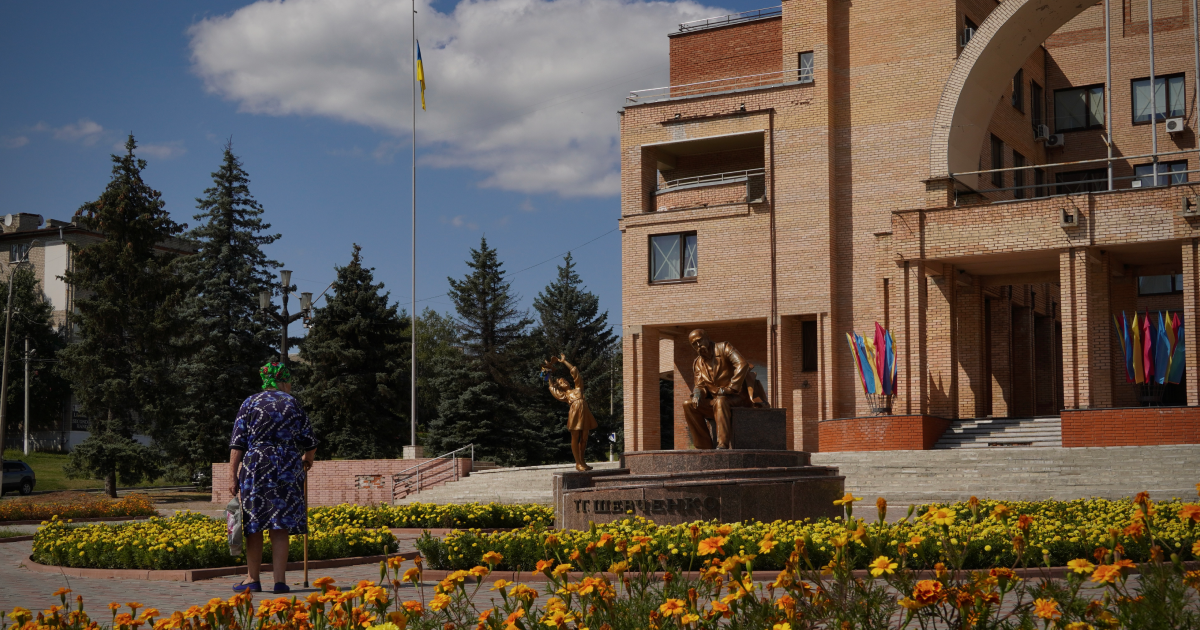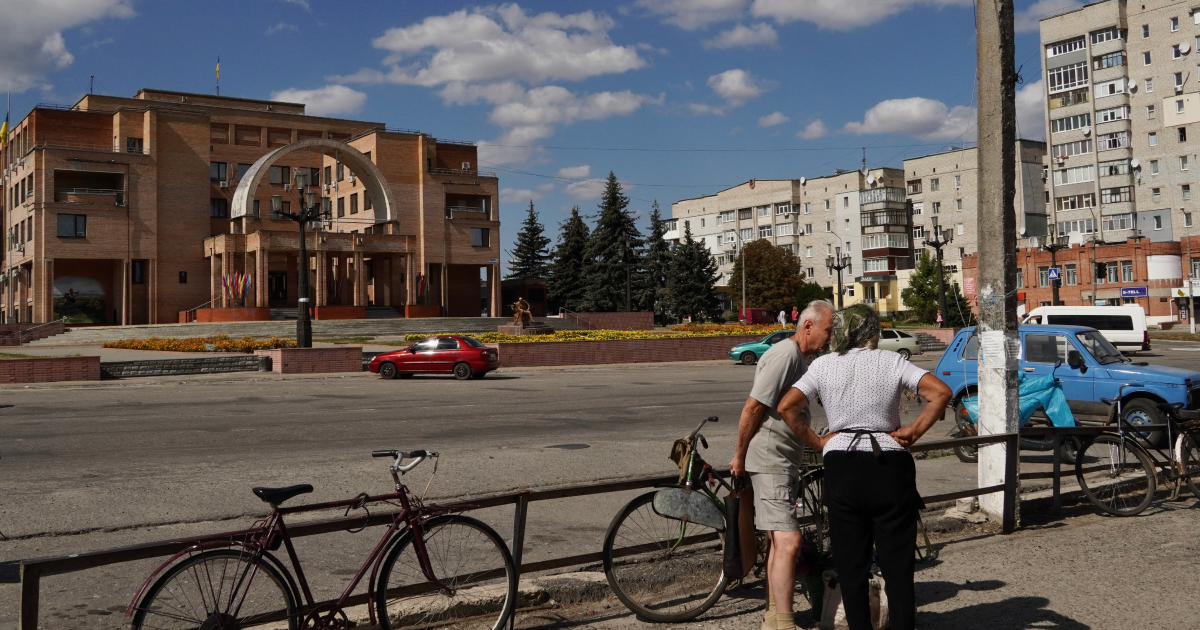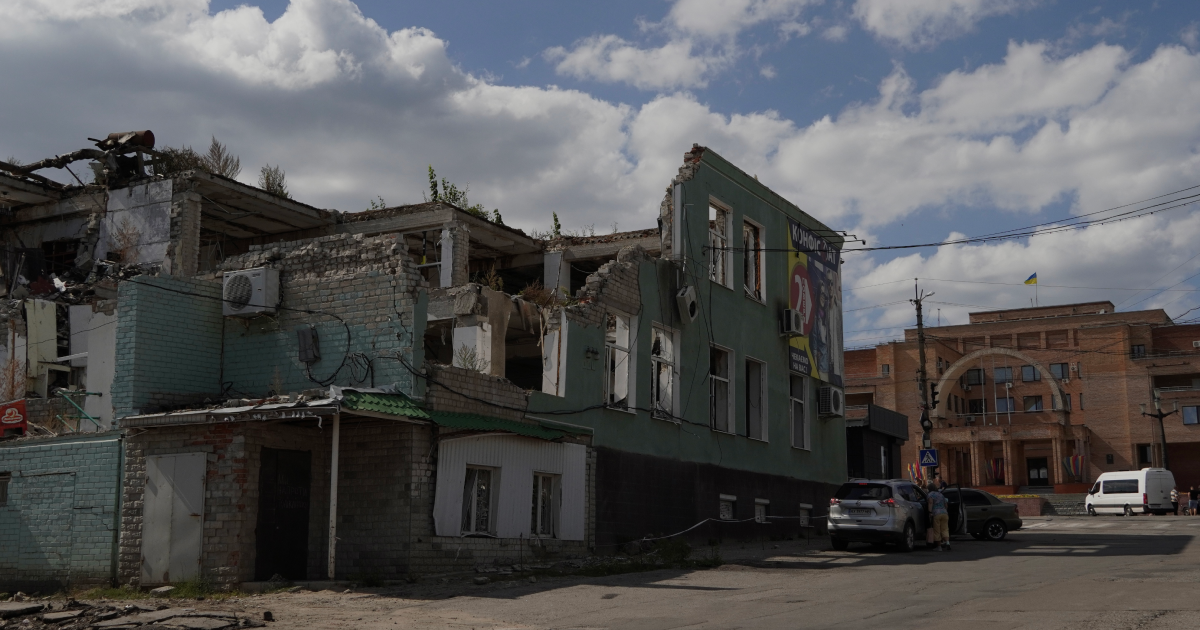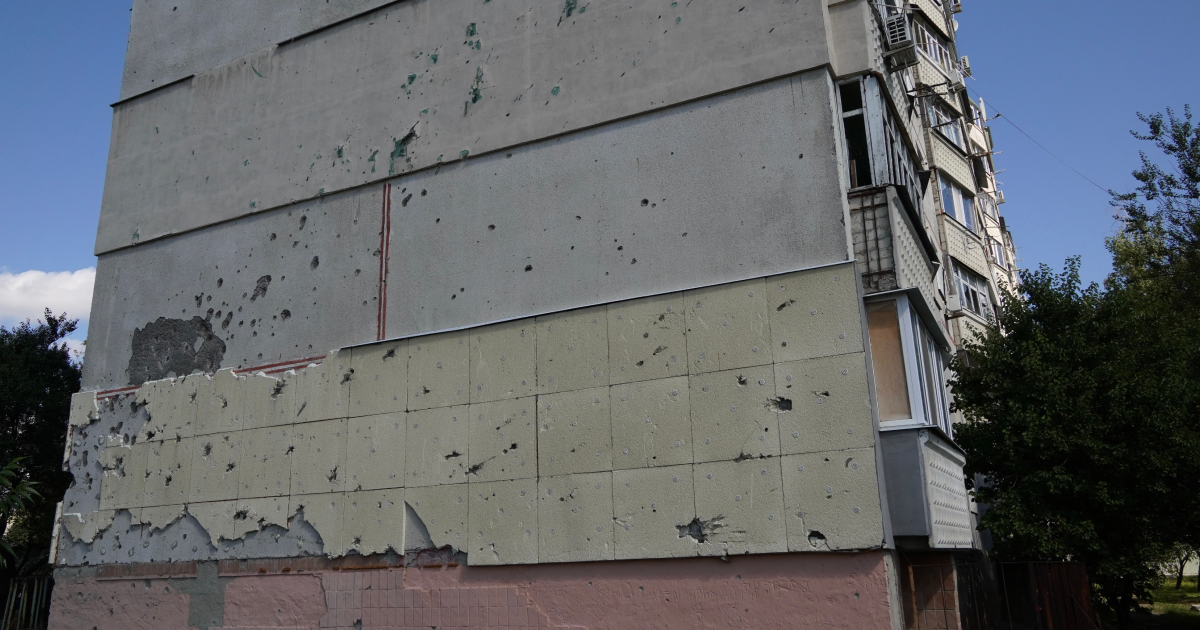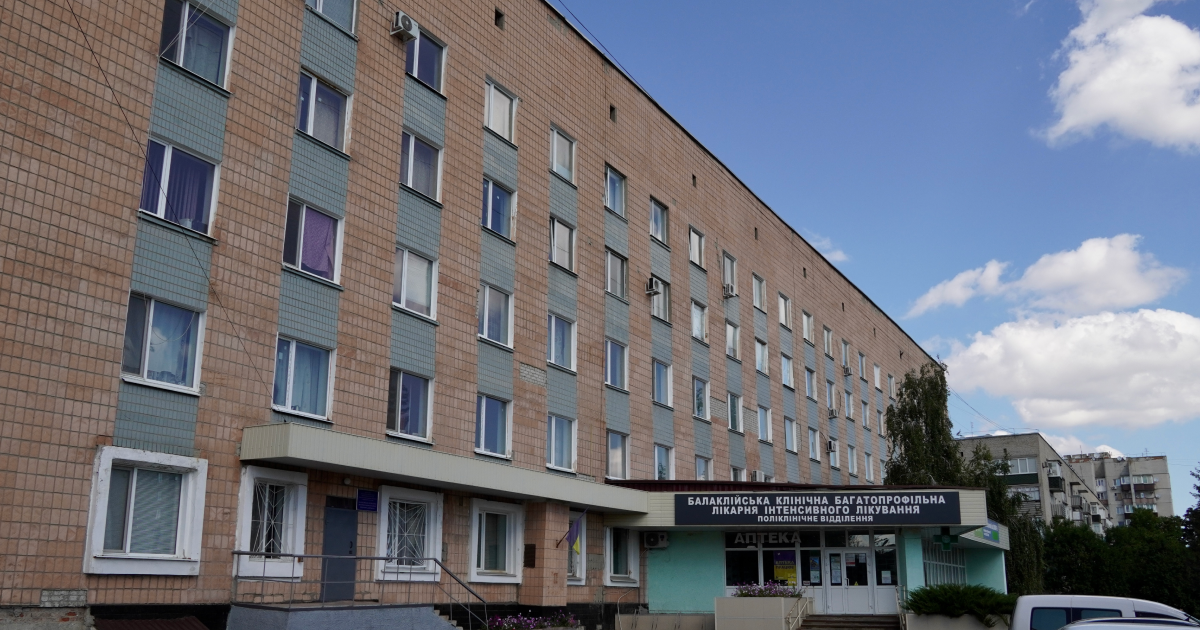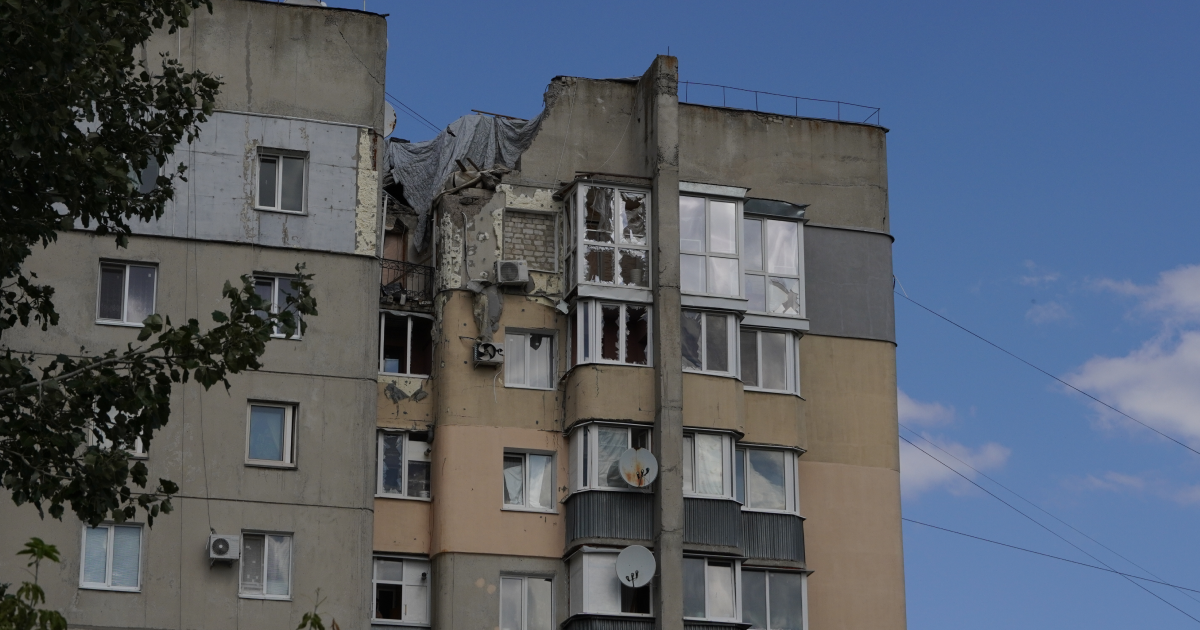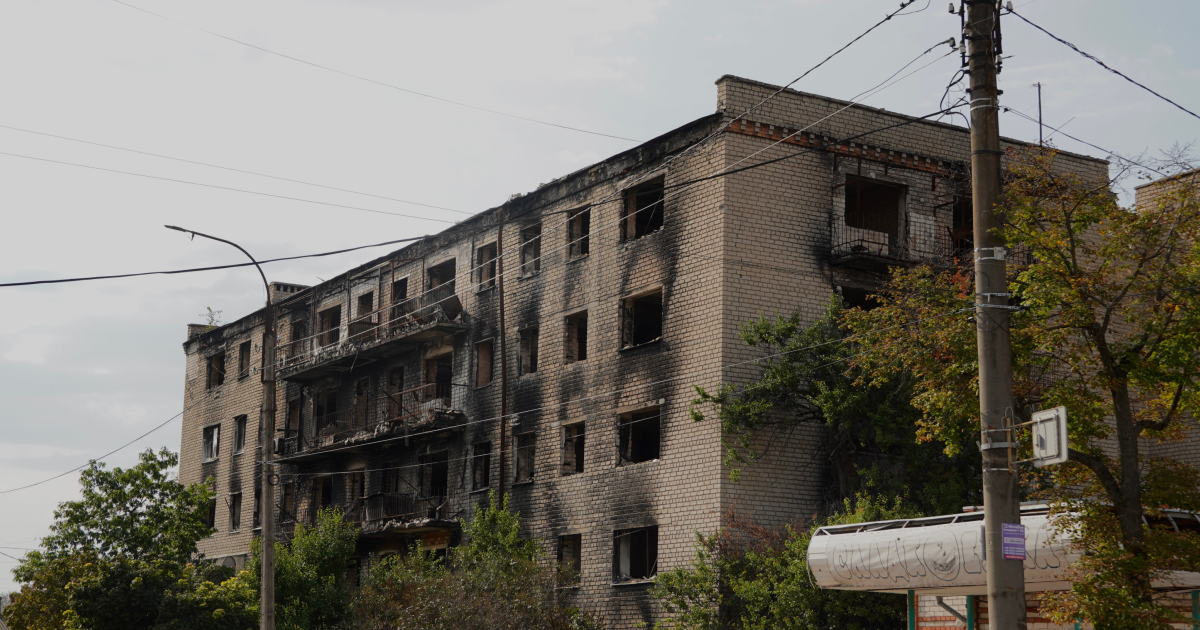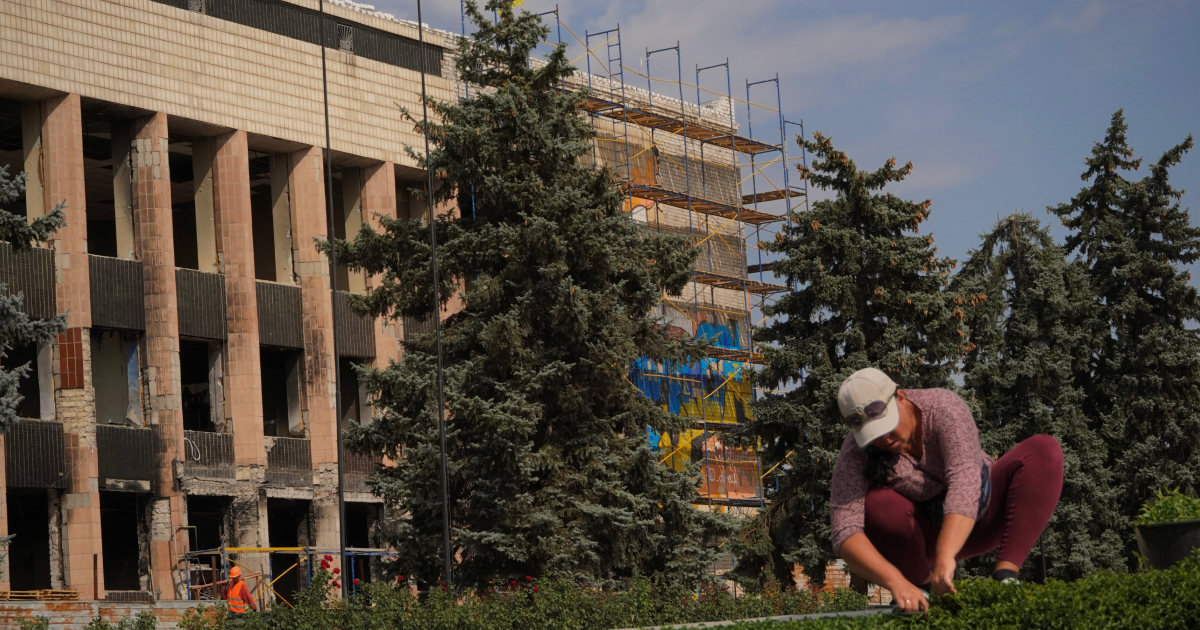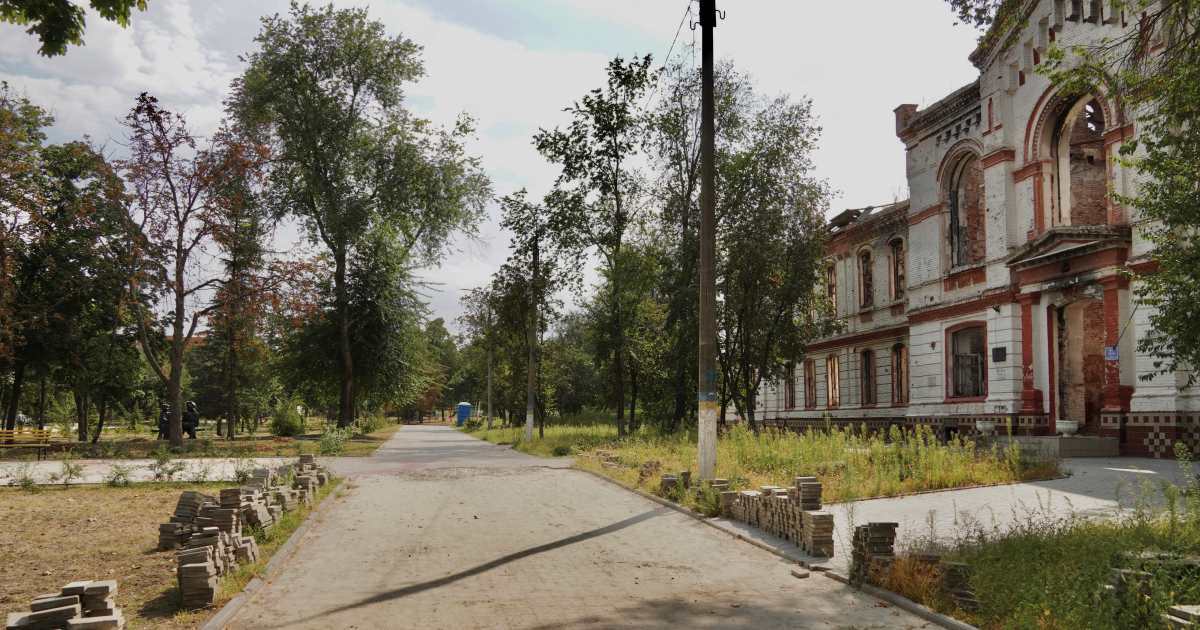De-occupied Kharkiv region. How does Ukraine bring de-occupied territories back to normal life?
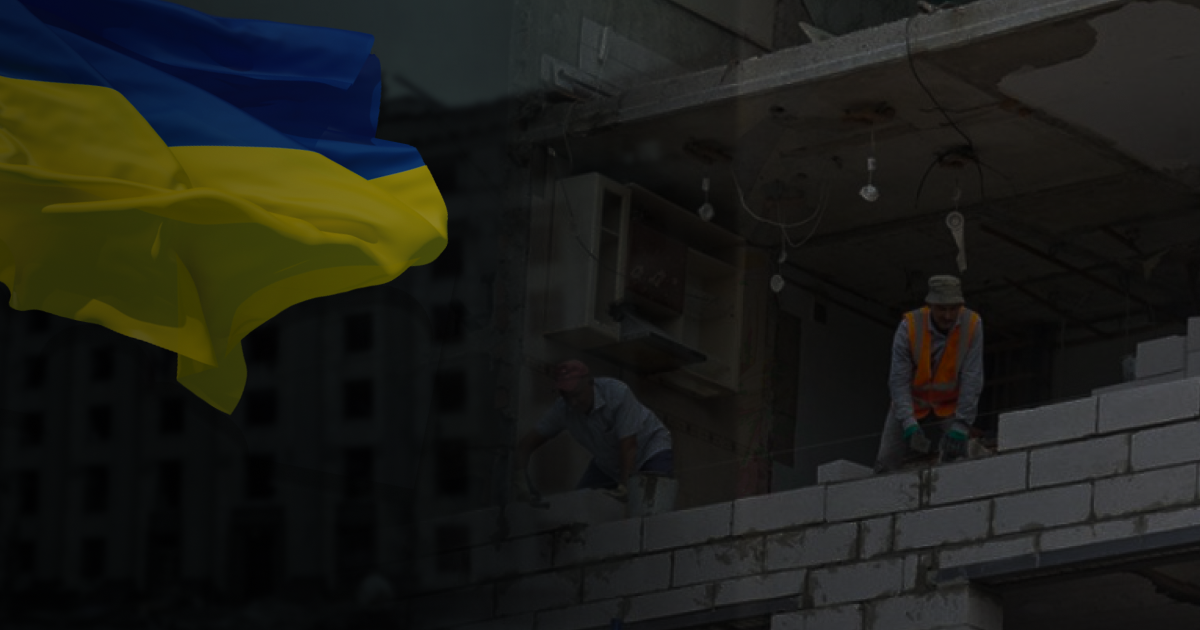
When the Russians began their full-scale invasion, they quickly advanced through the Kharkiv region, came close to Kharkiv and occupied 22 territorial communities, or about 40% of the area.
In 2022, the Ukrainian military liberated almost all settlements in the Kharkiv region, and reconstruction began, along with multimillion-dollar procurement tenders.
This report focuses on the restoration, those who implemented it, and the lives of the locals after de-occupation.
Ruska Lozova
The people of Ruska Lozova village, 15 kilometres from Kharkiv, lived under occupation for two months. The Russians entered the village at the beginning of the full-scale invasion, and the Ukrainian military liberated it in May 2022.
Until February 24, 2022, about five thousand people lived in Ruska Lozova; in September 2023, hardly anyone was on the streets. Houses were shattered by shells, and in some places, they were destroyed completely. The spirit of recovery is almost non-existent, and it is rare to see roofs covered only with tarpaulin. Weeds could be seen growing among the ruins and brick fragments, which will soon overgrow the house, which is no longer habitable.
Despite this, the locals are returning. Electricity companies have restored power supply to all subscribers in the village, said Oleh Syniehubov, head of Kharkiv Regional Power Administration. They are planning restoration.
The Kharkiv District Military Administration has set up a working group called Transparency and Accountability to check tender procurement. The group includes local government representatives, the public, and heads of specialised units of the district military administration. The group is headed by the deputy head of the Kharkiv regional military administration, Yevhen Ivanov.
"No gross violations were found during the inspection of tender procurement in the Kharkiv district,"
he said.
Nevertheless, the Capital Construction Department of the Kharkiv Military Administration plans to renovate the village council building for UAH 82.2 million. More than UAH 11,000 per square metre was allocated for metal-plastic blocks, while the market price is UAH 8,000. They want to install benches near the village council for 24,700 hryvnias while they are available for much cheaper — starting at three thousand hryvnias.
The head of the Kharkiv District Military Administration, Volodymyr Usov, reports that the restoration of healthcare facilities, in particular in Ruska Lozova, is already underway. However, on one of the streets, we noticed an Outpatient Clinic of the General Practice of Family Medicine with broken windows, a damaged roof, mangled doors and no signs of restoration. The medical facility is not working, and the locals go to Kharkiv for help.
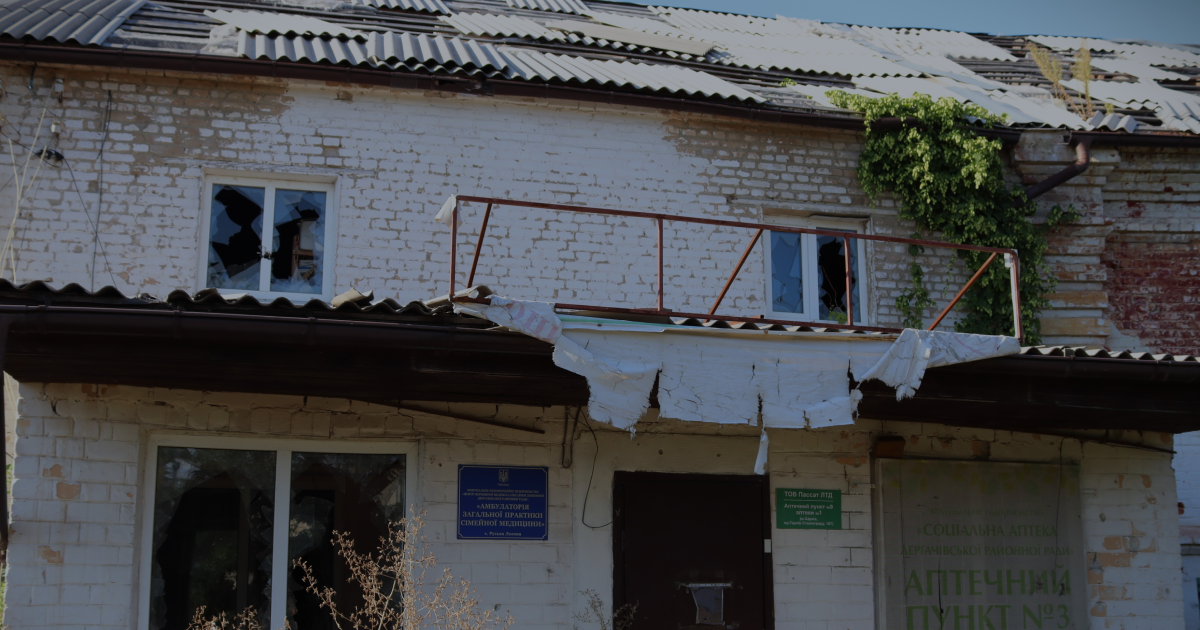
Balakliia
Ruska Lozova and other villages near Kharkiv were liberated in May 2022. But most of the Kharkiv region was de-occupied in autumn.
"Mr President, the order has been executed. The city of Balakliia is under control. The Russian occupation forces have withdrawn. Today is September 8 (2022 - ed.), 4 p.m.,"
the Ukrainian military recorded a video on the roof of the district administration. Balakliia was the first town to be liberated during the Kharkiv counter-offensive.
Located 85 kilometres from Kharkiv, Balakliia is a vital communication hub in the region's south. The de-occupation of the city contributed to the Ukrainian military's counter-offensive against Kupiansk.
As of 2020, Balakliia was home to 27,000 people. The city's coat of arms depicts a cement plant, and the news coverage of the town before the full-scale war was most frequent in 2017 when a large-scale fire broke out at an ammunition depot due to sabotage.
The next time Balakliia received the most mentions was in March 2022, when the Russians occupied the city. Mayor Ivan Stolbovyi went over to their side. The Prosecutor General's Office notified him of the suspicion, but the collaborator and his family left for Russia.
A year after his release, in September 2023, national flags are flying in the main square of Balakliia. Opposite, there is lively traffic, loud conversations and music at the market. It is next to the destroyed shopping centre, which has already been overgrown with grass.
Private entrepreneurs have reopened their shops and are still replacing windows and re-roofing. In addition to them, large businesses are returning to the city, such as the ATB grocery store and Allo store of electronics and gadgets.
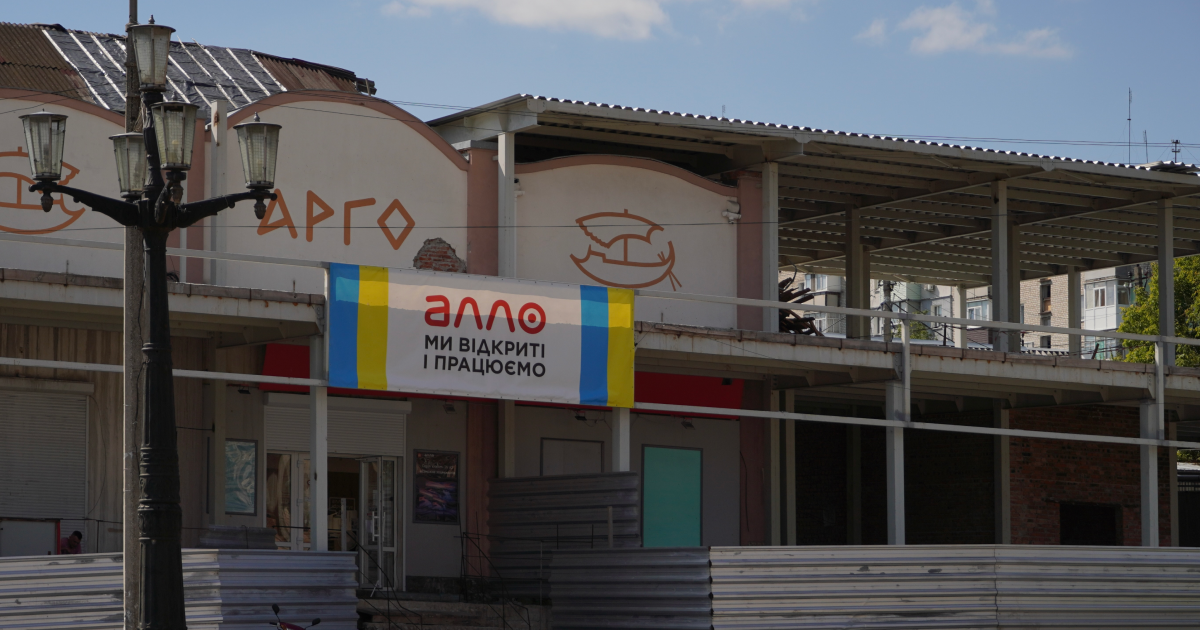
Balakliia looks like a lively, albeit scarred, city. Parks have fountains, and children's playgrounds are full of laughter. Cafes offer a variety of Japanese and Italian cuisine.
Banks, a hospital, and outpatient clinics are open, with traces of the fighting: cracks and taped windows. Five medical facilities in the Balakliia community were destroyed completely, and 60% were damaged or looted. The town polyclinic is now open, and there is a hospital outside the town.
During the period of occupation and active hostilities, the Russian army damaged or destroyed more than 200 high-rise buildings in the community.
In a local shop, we see craftsmen repairing the roof.
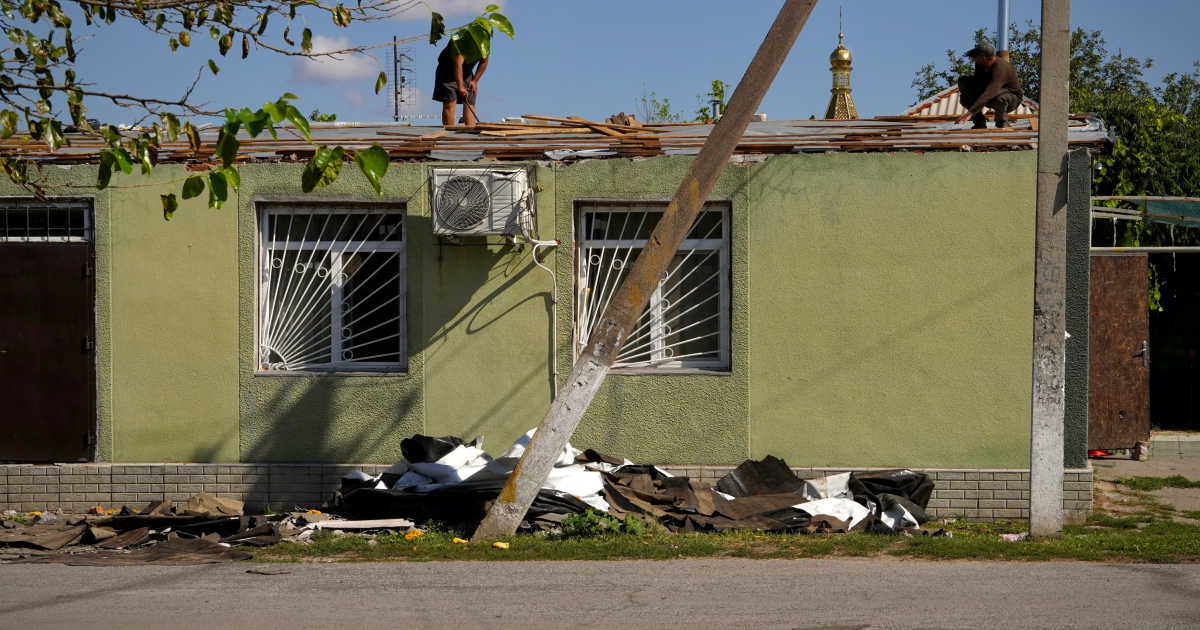
The shop assistant Olena says:
"We started working in May. There is no help for the repairs because the shop is private. We are replacing everything at our own expense. I know the locals receive funds through eVidnovlennia (eRestoration, a government assistance programme — ed.). The money helps replace windows and doors, but I don't see global repairs. There's a nine-storey building near my house that was hit by a shell, and it is still in ruins."
Kharkiv region became the leader in the number of applications under the eVidnovlennia programme. Over UAH 914 million in compensation has already been paid to the region's residents, and over UAH 112 million in the Balakliia community.
Other regions and international partners also contribute to the restoration of Balakliya. The Vinnytsia City Council has donated UAH 10 million to prepare for the heating season, and UNICEF has opened a children's centre called Spilno. The Czech Foundation Man in Need helped with the installation of windows. The Czech Republic donated a temporary bridge installed on the Kharkiv-Zmiiv-Balakliia-Horokhovatka road.
Izium
Balakliia was followed by Izium, which the Russians occupied on April 1, 2022. On September 10, the city was liberated. On September 14, Volodymyr Zelenskyy came to Izium to raise the national flag over the city council.
During the full-scale invasion, the city suffered the most Russian air strikes - 476. About 80% of the infrastructure was destroyed.
Before the war, 35,000 people lived here, 23,000 returned. A year after the de-occupation, the city centre looks gloomy but lively. Half-ruined houses, windowless shops, and shelled high-rise buildings. The radio broadcasts and Ukrainian music play from loudspeakers as municipal workers tend to flower beds, sweep the street and lay new pavement.
We talk to a local taxi driver who is unhappy with the park's restoration.
"Flowers are planted in the centre, and paving stones are laid because foreigners constantly come there (in July, delegations from Canada, Sweden, and Switzerland visited Izium - ed.), so we need to show something. It would be better to take care of the residential buildings because they have not all been restored yet," the man says.
Izium received the greenery, flowers, trees and shrubs free of charge from Kyiv utility companies. However, the Housing and Communal Services Department of the Izium City Council spent almost UAH 100,000 on repairing and maintaining the fountain.
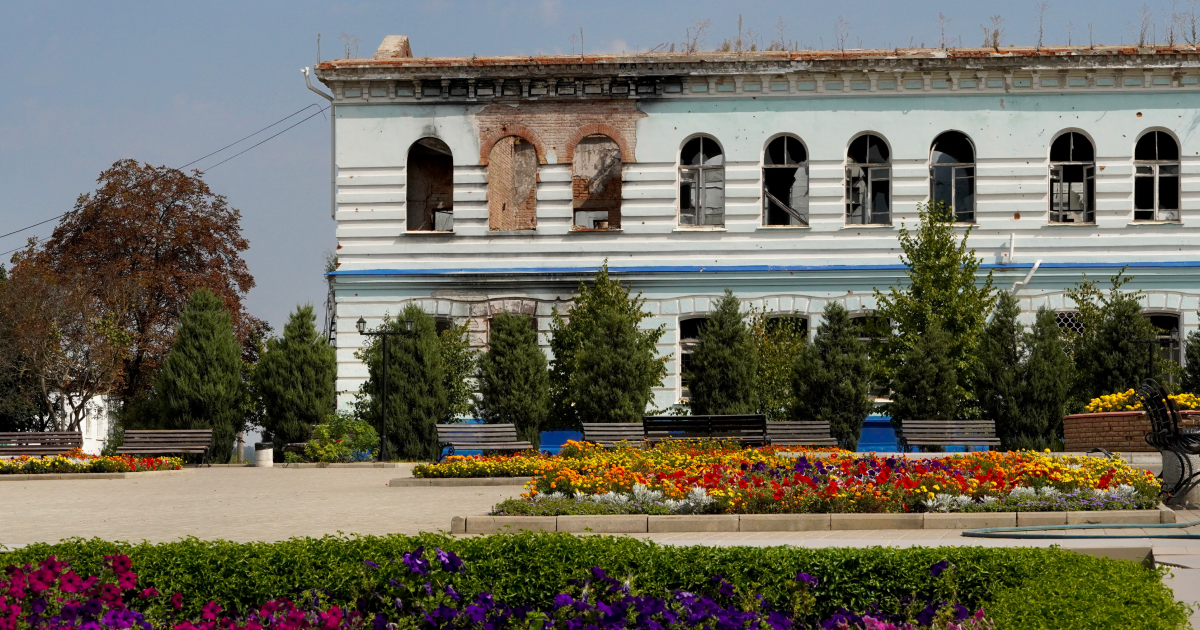
The tender was won by the utility company Blahoustrii of Izium (Enhancement of Izium). The Nashi Hroshi (Our Money) investigation states that in August 2023, the company entered into an agreement with Slobozhanske Construction Company Sargon LLC to repair the Kremianets Hotel building for almost UAH 25 million. This building houses government agencies, including the tax office and the migration service.
Prices for some materials turned out to be significantly higher. For example, metal-plastic doors were planned to be purchased at UAH 10,500 per square metre while the market price is UAH 8,000.
Music and sirens are accompanied by the sound of construction work as the city council, which was set on fire by the Russians during their retreat in September, is being rebuilt. UAH 130 million has been allocated from the fund to eliminate the consequences of armed aggression and the local budget. As in Ruska Lozova and the Kremianets hotel, metal-plastic doors will be purchased at UAH 11,850 per square metre when the market price is UAH 8,000.
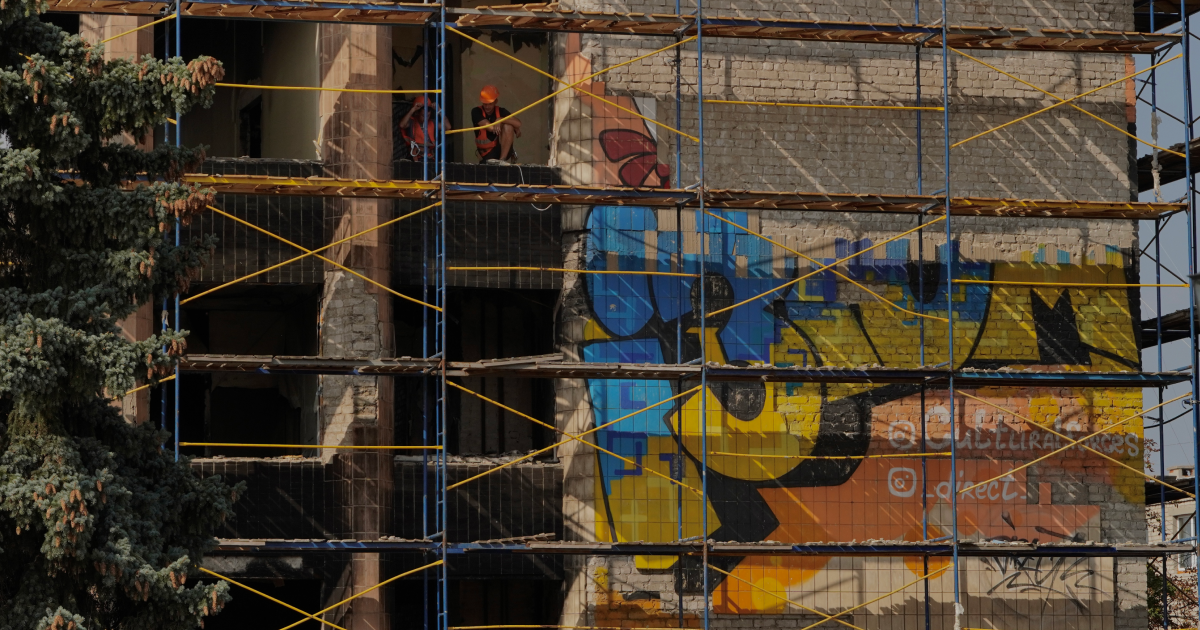
In the city centre, you can see tarpaulin covering buildings. As of the end of October, 120 high-rise buildings in Izium required significant repairs, and only 18 have been renovated.
One of the buildings needing major repairs is on Donets Zakharzhevskyi Street. As of September, the repairs had yet to begin. Some windows are still broken, with bricks and inter-floor beams in the entrances. People talk to those sitting on the benches below from the surviving balconies.
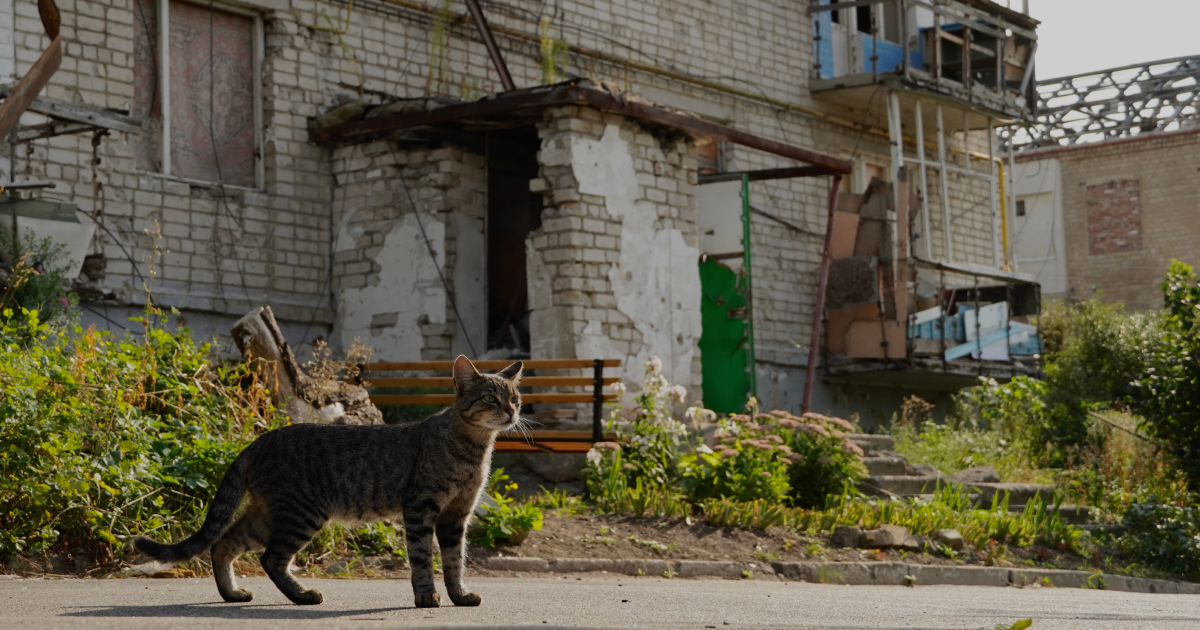
Among those who support and help the locals is the NGO Vіrnyi Napriam (The Right Direction).
"Almost immediately after the de-occupation, we delivered food and water. Later, we joined the restoration of residential buildings - we repaired roofs, transported building materials, and installed glass in broken windows,"
says the head of the organisation, the president's full namesake, Volodymyr Zelenskyy.
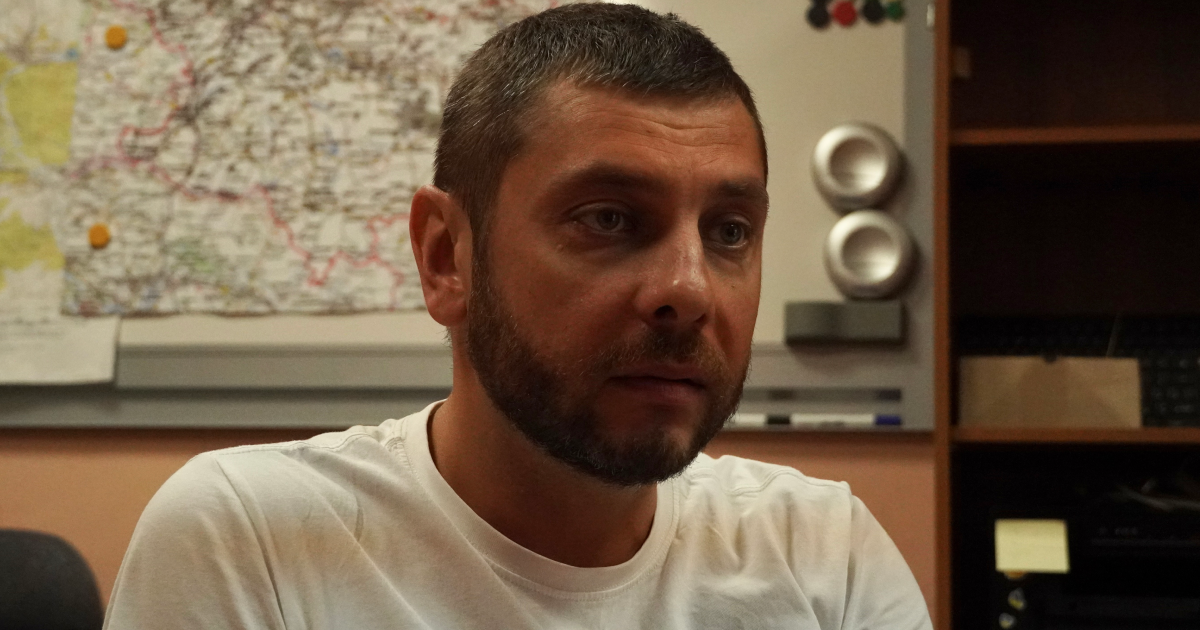
The destroyed Izium secondary school No. 4 is located in the central park. There is no roof or windows, and some walls have been levelled to the ground - the organisation is also helping with this. They are buying equipment and furniture because, during the occupation, the Russians completely looted the school — there are not even desks or chairs.
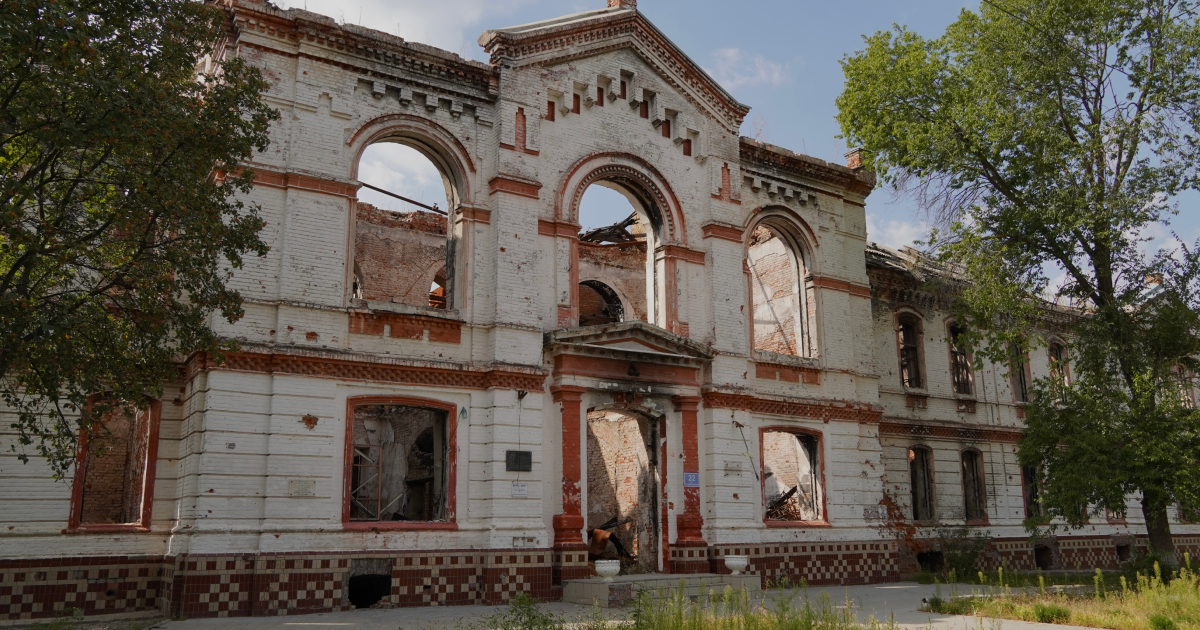
"Currently, the educational process is fully online, but we hope that after the victory, children will be able to go to school immediately, and everything will be ready for this," says the head of the organisation.
Tenders, construction companies and inflated prices in the Kharkiv region
According to the Prozorro system, as of September 2023, more than UAH 1.5 billion worth of reconstruction contracts have already been signed in the Kharkiv region. The Kharkiv Anti-Corruption Centre writes that significant price overstatements in procurement estimates are common. This applies to almost all contracts.
For example, for a lyceum in Staryi Saltiv (a village 45 km from Kharkiv that was under occupation until early May 2022 - ed.), they plan to buy two solid fuel boilers for UAH 756,000, while they can be found three times cheaper. A tender for the entire overhaul of the lyceum has been concluded for almost UAH 194 million.
The head of the Kharkiv Regional Military Administration says it is expected to be back in operation by the next school year. The press service of the Kharkiv RMA said that the total cost of the renovation was over UAH 205 million. As of the end of November 2023, the lyceum was already undergoing repairs.
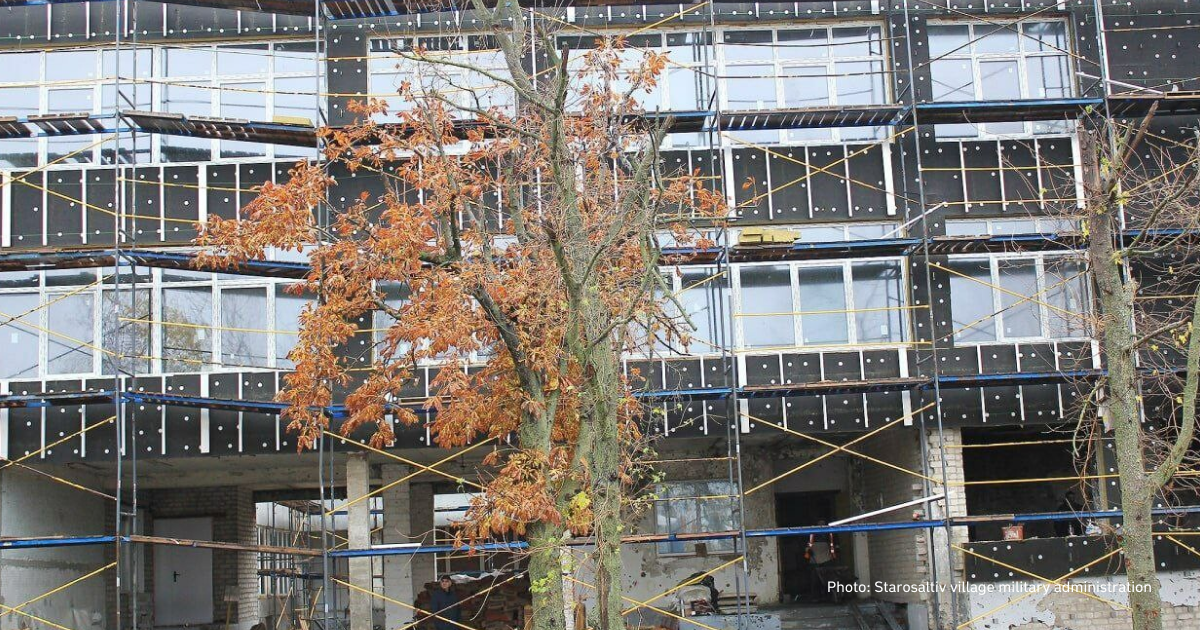
The Centre for Administrative Services and the village council in Staryi Saltiv allocated 62 million to repair the building housing the outpatient clinic. The Nashi Hroshi publication also found overpricing for water heaters, heat accumulators, cables and filler.
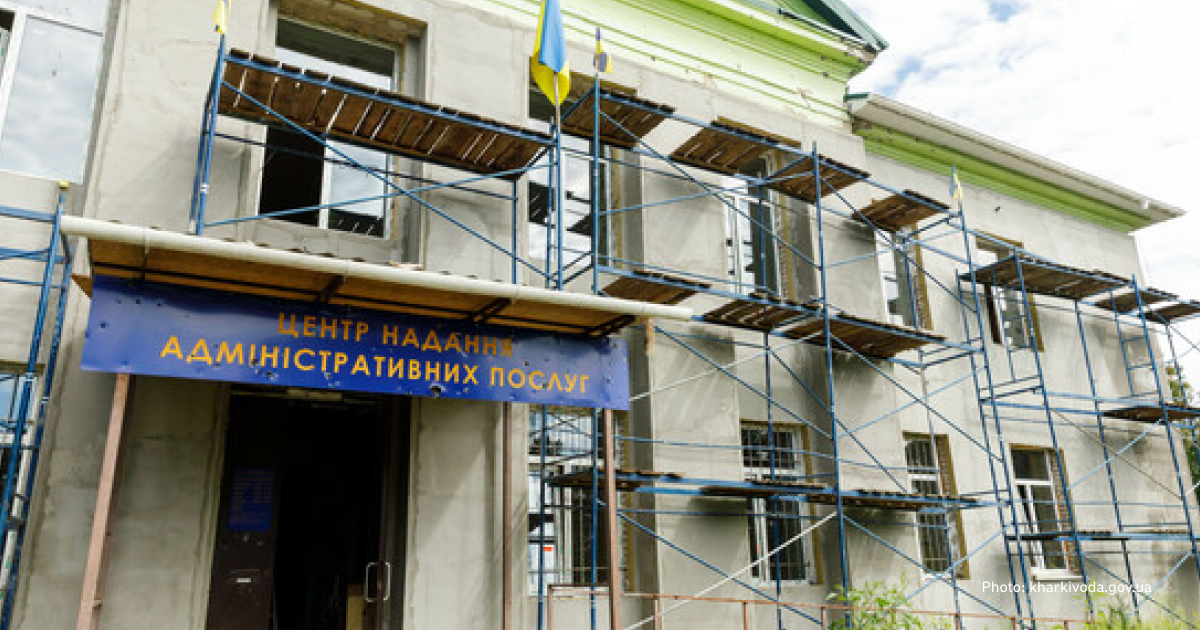
The DOZORRO project of Transparency International Ukraine, after analysing procurement for the reconstruction of the Kharkiv region, notes that large orders are often awarded to companies involved in criminal proceedings or investigations by journalists with ties to government officials and former nominees of the Party of Regions.
The most considerable amount of orders for the reconstruction of the Kharkiv region — over UAH 200 million — went to Promteks Construction Company, which, according to DOZORRO, is linked to the Avantazh group of construction companies owned by the former Party of Regions People's Deputy Anatolii Denysenko.
In 2018, the company misappropriated budget funds ordered by the Department of Public Utilities of the Kharkiv City Council. In 2019, law enforcement officers opened a similar criminal investigation on suspicion of embezzlement of funds intended for repairs in Kharkiv.
On November 17, 2023, during a briefing, Oleh Syniehubov reported that this year's expenditures for the reconstruction of the Kharkiv region at the fund's expense for eliminating the consequences of armed aggression amounted to UAH 1 billion 107 million.
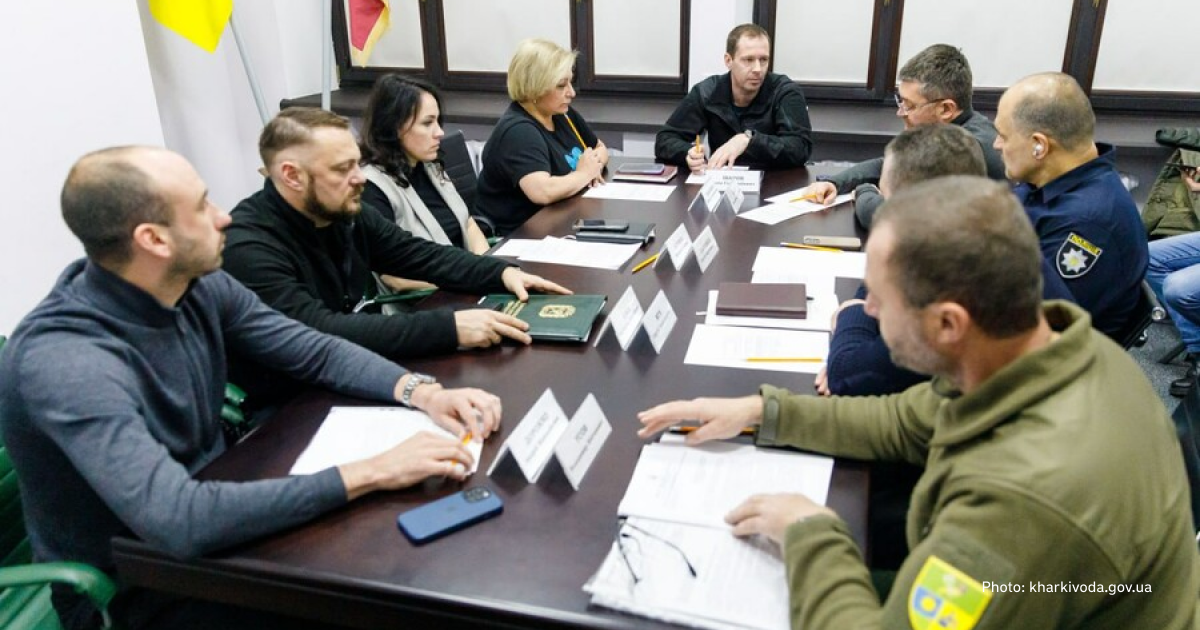
"We are currently implementing over 60 reconstruction projects in the Kharkiv region. We are one of the leaders in terms of the pace of reconstruction, as our region is almost completely de-occupied, and a significant number of facilities have been affected by Russian aggression and need to be restored quickly,"
said the head of the Kharkiv Regional Military Administration.
The Kharkiv Regional Military Administration has a Transparency and Accountability Group to monitor tender procurement. The group includes representatives of local authorities, the public and heads of specialised departments of the RMA. Yevhen Ivanova, the deputy head of the Kharkiv RMA, heads the group.
"No gross violations were detected during the inspection of tender procurement in Kharkiv district," said Yevhen Ivanov.
Volodymyr Rysenko, lawyer of the Kharkiv Anti-Corruption Centre, said in a comment to Svidomi that the Kharkiv City Council responds to journalists' investigations into unfair procurement.
"Our centre wrote about incomprehensible tenders of the City Council's Department of Innovative Development: holding festivals, competitions or purchasing unnecessary souvenirs. After the material was published, an internal investigation was launched. When it was found that the department's effectiveness was questionable and the procurement was of poor quality, the department was eliminated, and its head was fired,"
says Volodymyr Rysenko.
Instead, according to Rysenko, the Kharkiv RMA does not respond to reports of procurement irregularities. In addition to inflated prices, corruption schemes often involve direct contracts that are concluded without a tender.
"In Chuhuiv, in October-November 2023, 14 contracts for renovating residential buildings worth UAH 20 million were concluded without a tender. No competition is involved, and it is unknown on what principle the companies are selected. The meaning of economic competition is being killed," says the lawyer of the Kharkiv Anti-Corruption Centre.
Also, during tenders, certificates of completion are forged. For example, it is stated that the contractor has completed one million worth of work. However, according to the financial documentation available in YouControl, the company has a revenue of about 300,000, says Volodymyr Rysenko. Law enforcement agencies do not investigate such violations.
"The authorities may say that there are no gross violations in procurement because they do not consider overpayments to be a violation of the law. They think that until the court has established a violation, there is no violation,"
explains Volodymyr Rysenko, lawyer of the Kharkiv Anti-Corruption Centre.

